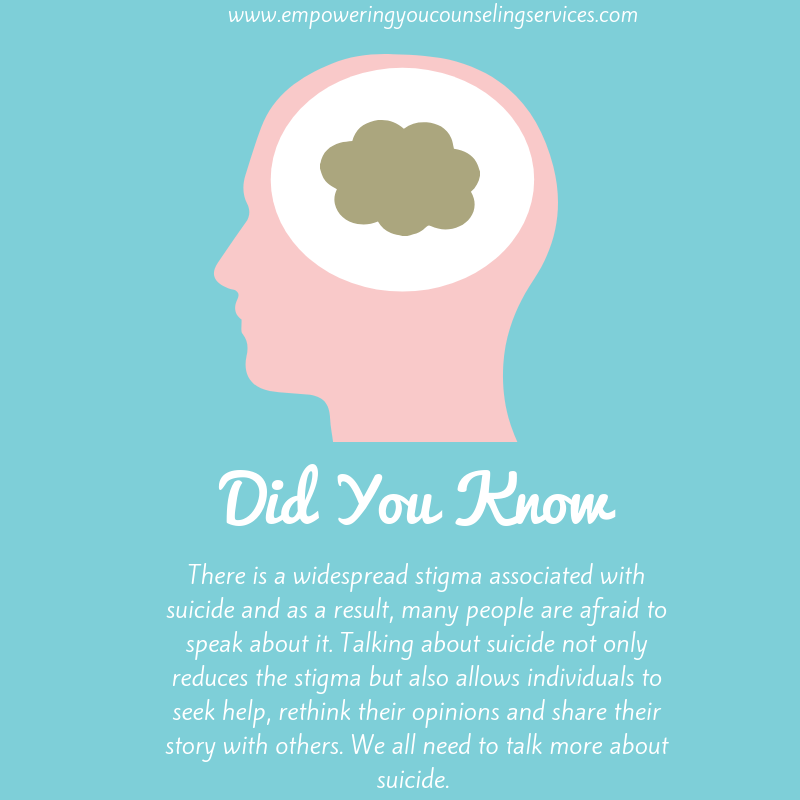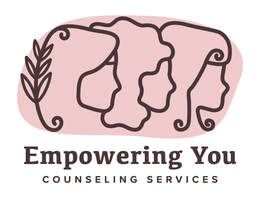 “Depression is the most unpleasant thing I have ever experienced. . . . It is that absence of being able to envisage that you will ever be cheerful again. The absence of hope. That very deadened feeling, which is so very different from feeling sad. Sad hurts but it's a healthy feeling. It is a necessary thing to feel. Depression is very different.” J.K. Rowling I describe depression as a dark cloud that hangs over you. At times this cloud becomes so dark and large it is difficult to see anything other than darkness. You feel alone and unsupported. That cynical, overly critical voice in your head becomes louder and more persistent. Low moods and energy lead to lack of motivation, isolation and little interest or pleasure in things. Thoughts of hopelessness/worthlessness creep in a and become painfully overwhelming. Sometimes people experience thoughts of hurting themselves or even of death. There are several factors that can lead to depression, such as family history, relationship problems, life problems, unresolved grief, trauma or shame. How Therapy Helps With Depression Therapy helps with depression by putting you in contact with a caring and supportive therapist. Your therapist understands that depression isn't something you can "just get over". They understand depression runs deeper. You don’t have to feel alone with these overwhelming thoughts and feelings. As clients open up in therapy and receive empathy and validation, they begin to experience relief and connection. As we explore your depressive symptoms, we work to identify the root of your depression. Discussing your depression is often the first step to examining your Backstory in a safe and caring environment that allows you to heal the parts that need healing. This process helps to reduce your current symptoms and create long lasting and meaningful change. SYMPTOMS OF ADULT DEPRESSION:
0 Comments
 When I first started my journey of becoming a therapist suicide scared me. Talking about suicide scared me I told myself talking about it would make it worse. I told myself it would make the individual feel uncomfortable when in reality it was me that was scared and uncomfortable. This is the problem society is experiencing today regarding suicide. Suicide scares people, and it makes them uncomfortable. What do we do when something makes us uncomfortable? We avoid it or act out of fear! Family members look the other way hoping it will resolve itself and mental health professionals automatically jump to hospitalization. I have witnessed and heard the above scenarios happen more often than not. We aren't sitting down with these individuals asking them how we can help or asking them what they need from us? It's this thought process that is keeping a veil of shame around suicide. Keeping individuals feeling ashamed and not reaching out for help. How to do we fight shame? By talking about it. The more we talk about it, the less power shame holds. (Channeling my inner Brene Brown here) Through education, experience and speaking with individuals I have grown into the therapist that is now not only comfortable talking about suicide but also working with clients that are currently experiencing suicide or have a history of it. When someone voices suicide to me, my first reaction no longer is "oh shit" but rather " ok let's have a deeper conversation about this." As friends and family, we can do better! As mental health professionals, we can do better! As a community, we can do better!  When we enter a new relationship, it is easy for us to get caught up in the excitement of something new that we tend to ignore or excuse the unhealthy behavior in our partner. The following red flags should never be ignored.
 All couples experience a period of disconnect at some point in their relationship. Issues such as infidelity, constant fighting, lack of intimacy, poor communication and trust can all lead to feeling disconnected from your partner. Couples tend to panic during this time of disconnect. They begin to feel that the relationship is over or that the issues can't be resolved. Once they are in this disconnect couple don’t know how to communicate with each other without attacking each other or shutting down. Communication is the key between couples. It is difficult for couples to remain objective and fair during a heated argument. During the argument, each person normally focuses on the point they are trying to get across not on what their partner is saying.There is no actual listening, understanding or respect taking place. During this time assumptions are made that lead to hurt feelings, and small obstacles turn into huge fights. The daily challenges of raising kids, work, finances and home life leaves little time to focus on relationships. However, this disconnect can be a great opportunity for the relationship to grow and become stronger. Ultimately couples who take the time to understand each other's needs and make an effort to change can be successful Does Couples Counseling Work? According to the American Association of Marriage and Family Therapist couples that attended counseling session reported a high satisfaction rating. They reported that 98 percent of the individuals surveyed reported good or excellent experience during couple's therapy. Of those surveyed 97 percent stated they received the help they needed and also the tools needed to maintain their connection. Couples therapy can work if both individuals are willing to put the work and effort to make the necessary changes. How Does The Process Work? The first session consists of you and your partner meeting with the counselor. This first session is called an intake. During this time you will discuss your current concerns with the counselor. You will provide as much insight into your relationship as possible. At the end of the session, you and the counselor will develop a plan for how often you would like to attend counseling. Most couples will come on a weekly basis for a couple of weeks and then move to bi-weekly once they are feeling more empowered as a couple. After the first session, you will develop the goals you have for counseling. The counselor will begin to show you both new tools to improve communication. |
Author'sApril Schoonover, Archives
May 2024
Categories |
|
2008 NW Military Suite 3, San Antonio, TX 78213
|
(210) 942-8911
|
Hours:
Monday-Friday 10 am to 6 pm
Monday-Friday 10 am to 6 pm
Website by TherapyPrime

 RSS Feed
RSS Feed